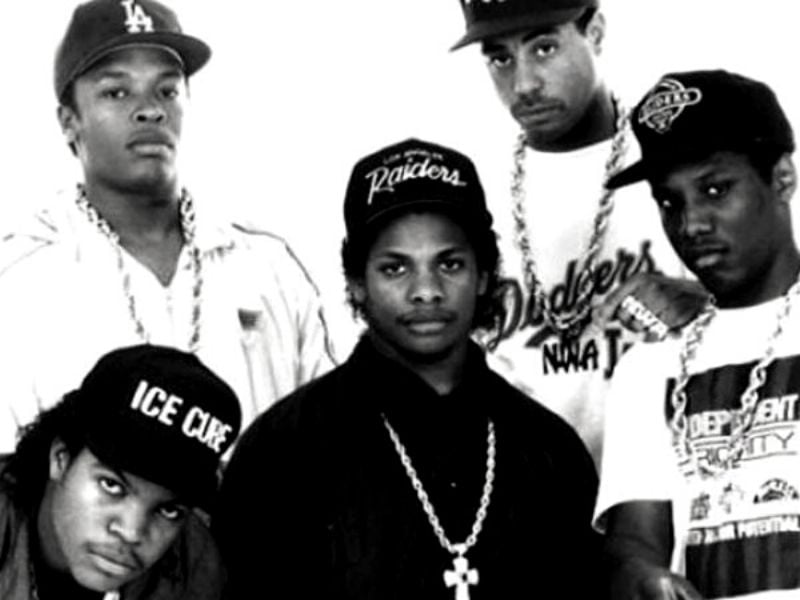Today we’re looking back at arguably one of the greatest debut albums of all time and, most certainly, one of the most potent rap records ever made. You guessed it, today we review N.W.A’s 1988 classic debut album, Straight Outta Compton.
In a world before Soundcloud, Bandcamp and Youtube meant that artists were able to express themselves to the masses at the touch of a button, N.W.A. managed to achieve the monumental feat of pushing a lyrical style that was confrontational, shocking and most importantly true to real-life right into the heart of the mainstream.
Barely 60 seconds pass before Ice Cube exclaims “AK-47 is the tool, don’t make me act the motherfuckin’ fool”. For those struggling to get by in crime-ravaged areas of the state, right under the nose of the apathetic millionaires of Hollywood, the record was musical documentation of a whole class’s searing anger.
The album is a lot more than just a verbal assault on the government, however, rather it is a ‘what you hear is what you get’ representation of life in the ghetto. A clear narrative.
The story is told expertly by Cube, Dr Dre, MC Ren & Eazy-E (and in part Arabian Prince)—and during moments such as ‘Express Yourself’ there is a demonstration that being part of an underclass can be flipped around and used as a muse for something to aspire to.
On the other hand, stuffy-nosed critics might look back on the 27 years since Straight Outta Compton and lay into the overt message being communicated on tracks like ‘I Ain’t Da 1’ and ‘A Bitch is a Bitch’—but like we said, this was a quartet of hip-hop’s finest, but also most honest and real.
So how has a record that outraged the status quo so much gone on to become a bona fide classic? From one angle, it’s the Never Mind the Bollocks mentality—rising to the top at a time of repression simply by having the balls to speak out.
Also on the musical side of things, however, N.W.A’s iconic beat-smith DJ Yella has to be given a huge amount of credit for teaming head-banging breakbeats with samples taken from 1960s soul, funk, pop and R&B—a factor that made Straight Outta Compton notably more accessible than the output coming from many other budding (and extremely talented) MCs of the time.
In effect, it gave the vocalists a few extra inches when it came to communicating the ferocity and potency of the social injustices they were discussing without alienating label bosses conscious of tapping into the profitable mainstream.
Listening to Straight Outta Compton makes it pretty obvious why the authenticity would have fizzled out had N.W.A. gone on to make more records much further past their 1991 expiry date, in the midst of worldwide popularity and wealth.
However, the much-discussed shooting that took place during the filming of the biopic demonstrates that the record itself is still just as relevant as it has been for the last three decades when it comes to documenting the problems and danger in America’s ganglands.
